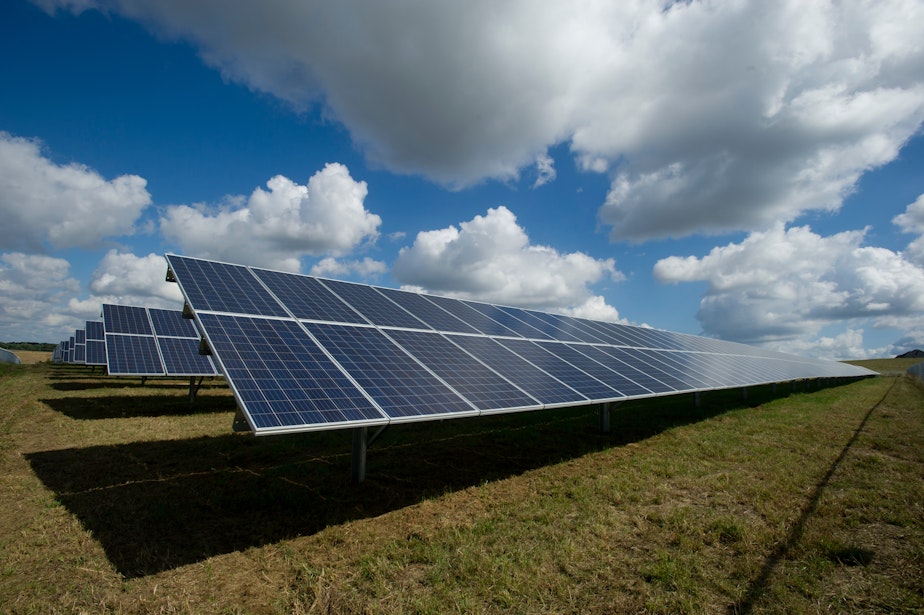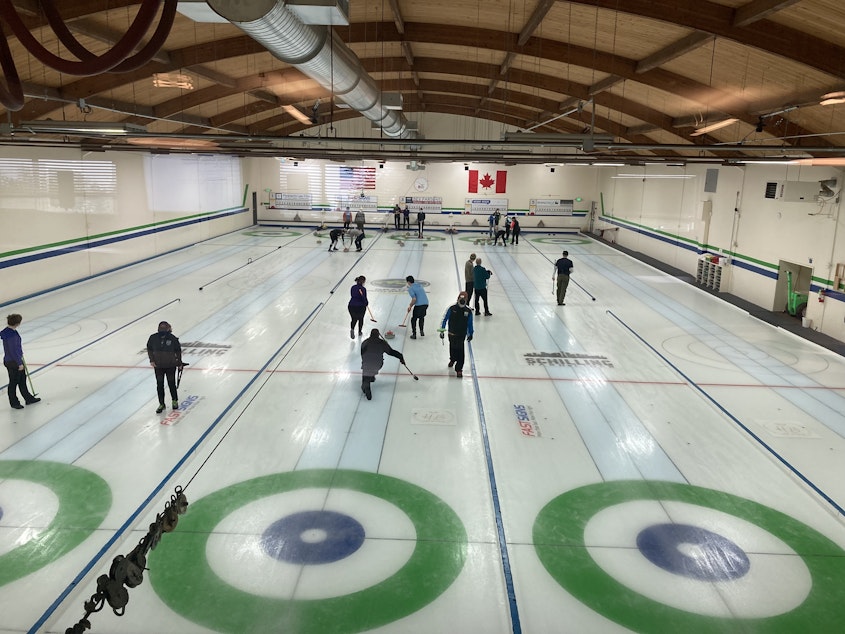Debating Washington's renewable energy: Today So Far

- Washington state lawmakers are considering two bills that promote a very different approach to the region's renewable energy projects. Under consideration are the people who have to live with the clean energy, and those who will benefit.
- The flu is back in Washington at "moderate" levels.
This post originally appeared in KUOW's Today So Far newsletter for Jan. 28, 2022.
Washington is known as a state that promotes renewable energy. But who has to live with it?
That's the dynamic state lawmakers are debating this session — weighing the human costs, and the environmental costs. Much of the energy Washington produces is consumed by the more populated areas of the state. But it's in the poorer, less populated areas where energy projects get placed. That has rubbed locals the wrong way, who argue that human impact studies never happen, and companies work around local control. That's at the core of one new bill that could significantly delay the approval of new energy projects.
RELATED: Even in the bright of day, some Central Washington residents have a solar energy 'nightmare'
But it's not the only energy bill up for consideration in Olympia. Another bill is pretty much the opposite of the first, aiming to increase clean energy production in Washington. And in turn, create a lot of new clean energy jobs. These two bills are going head-to-head this session. Read more about them here.
Finally, I often make space here to provide some pandemic updates, but I'm going to give you all a little break today ... I'm gonna talk about the flu instead. The flu is back in Washington. After a two-year absence, flu cases have returned to "moderate" levels, according to Washington's Department of Health. This comes after pandemic measures (social distancing, working/studying from home, masking) had a side effect of knocking down flu cases to historic lows. Now, three people, all over the age of 65, recently passed away from influenza. The last time a person died from the flu in Washington was in the 2019-20 season.
For a little context, there were 114 reported flu deaths in 2019-20. And over January of 2020, there were 36 flu deaths. So we're not exactly back to previous flu levels. But as more and more people emerge out of the pandemic, the more the flu appears to be reemerging, too.
AS SEEN ON KUOW

Curling at the Granite Curling Club in Seattle. The club usually sees a spike in interest after the Winter Olympics. The U.S. national curling coach goes to Granite Curling. (Sarah Liebovitz / KUOW)
DID YOU KNOW?
Tuesday, February 1 is Lunar New Year (aka Chinese New Year or Spring Festival). The U.S. might not talk about it as much, but from a global perspective, it's a big deal — Lunar New Year is celebrated by about a quarter of the world's population. In fact, it's the cause of the world's largest annual migration (about 200 million people in China make this holiday trek). However, a lot of the sentiments behind this holiday may seem familiar to the experience of the December holiday season (family gathering, big dinners, gifts, traveling, preparing for a brighter new year).
Lunar New Year follows the lunar calendar (instead of the Gregorian calendar that is likely on your wall), so it falls on a different day each year, generally between Jan. 21 and Feb. 20. It happens when the new moon arrives around this time and kicks off a 15-day festival that includes a reunion dinner (when families gather for big holiday meal), fireworks, and gifts which are commonly in the form of red envelopes containing money. Those red envelopes are a great idea. I can't count the many times I've told my family to just give me money instead of a tacky shirt they picked up while traveling (which will go into a box in the back of my closet).
Our region has a significant Asian population with cultures that celebrate Lunar New Year, so there is always an event to check out. Though, due to the recent omicron wave, Seattle's Chinatown International District has rescheduled its Lunar New Year celebration to April 30.
What else don't we know? Email us at hello@kuow.org.

